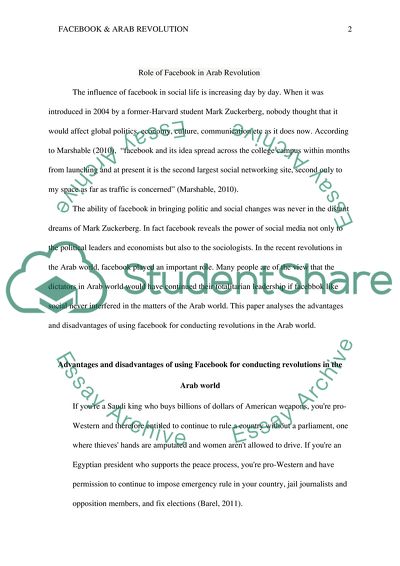Cite this document
(Role of Facebook in the Arab Revolution Coursework - 1, n.d.)
Role of Facebook in the Arab Revolution Coursework - 1. https://studentshare.org/information-technology/1759437-advantages-disadvantages-of-facebook
Role of Facebook in the Arab Revolution Coursework - 1. https://studentshare.org/information-technology/1759437-advantages-disadvantages-of-facebook
(Role of Facebook in the Arab Revolution Coursework - 1)
Role of Facebook in the Arab Revolution Coursework - 1. https://studentshare.org/information-technology/1759437-advantages-disadvantages-of-facebook.
Role of Facebook in the Arab Revolution Coursework - 1. https://studentshare.org/information-technology/1759437-advantages-disadvantages-of-facebook.
“Role of Facebook in the Arab Revolution Coursework - 1”. https://studentshare.org/information-technology/1759437-advantages-disadvantages-of-facebook.


